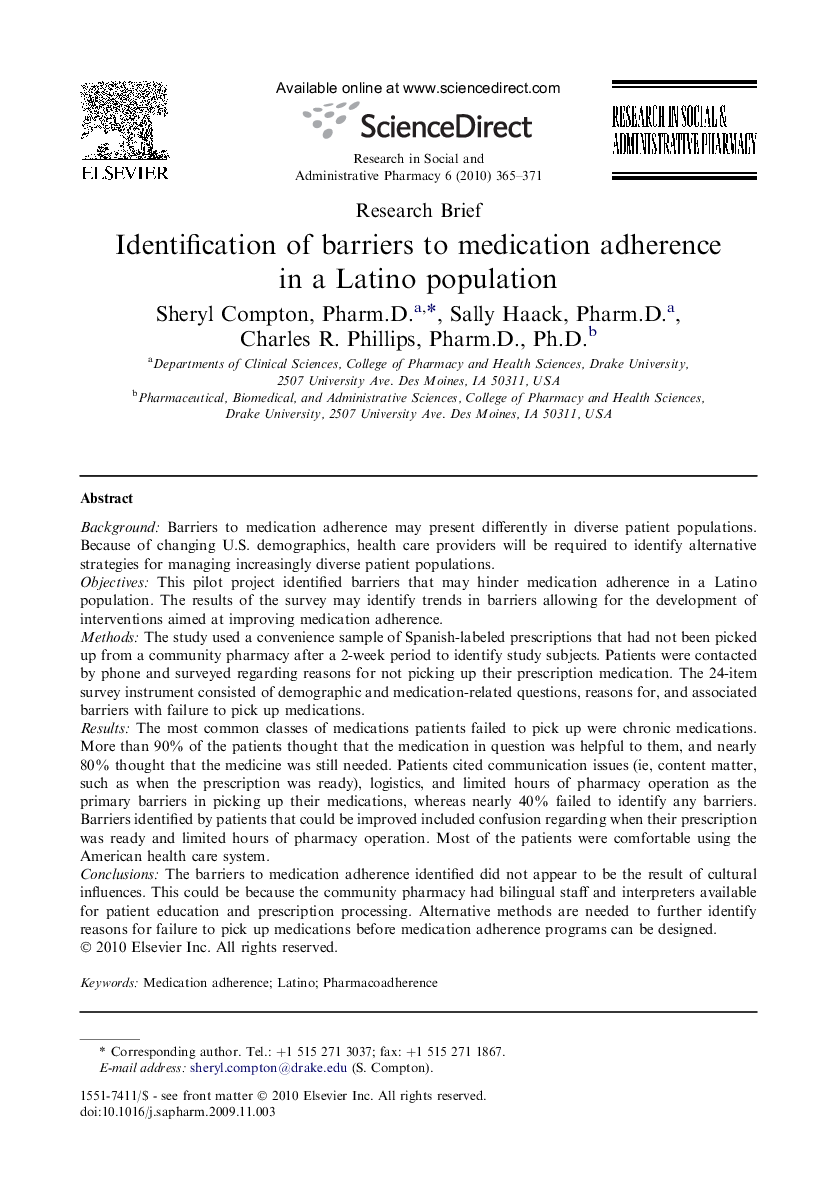| Article ID | Journal | Published Year | Pages | File Type |
|---|---|---|---|---|
| 2508882 | Research in Social and Administrative Pharmacy | 2010 | 7 Pages |
BackgroundBarriers to medication adherence may present differently in diverse patient populations. Because of changing U.S. demographics, health care providers will be required to identify alternative strategies for managing increasingly diverse patient populations.ObjectivesThis pilot project identified barriers that may hinder medication adherence in a Latino population. The results of the survey may identify trends in barriers allowing for the development of interventions aimed at improving medication adherence.MethodsThe study used a convenience sample of Spanish-labeled prescriptions that had not been picked up from a community pharmacy after a 2-week period to identify study subjects. Patients were contacted by phone and surveyed regarding reasons for not picking up their prescription medication. The 24-item survey instrument consisted of demographic and medication-related questions, reasons for, and associated barriers with failure to pick up medications.ResultsThe most common classes of medications patients failed to pick up were chronic medications. More than 90% of the patients thought that the medication in question was helpful to them, and nearly 80% thought that the medicine was still needed. Patients cited communication issues (ie, content matter, such as when the prescription was ready), logistics, and limited hours of pharmacy operation as the primary barriers in picking up their medications, whereas nearly 40% failed to identify any barriers. Barriers identified by patients that could be improved included confusion regarding when their prescription was ready and limited hours of pharmacy operation. Most of the patients were comfortable using the American health care system.ConclusionsThe barriers to medication adherence identified did not appear to be the result of cultural influences. This could be because the community pharmacy had bilingual staff and interpreters available for patient education and prescription processing. Alternative methods are needed to further identify reasons for failure to pick up medications before medication adherence programs can be designed.
